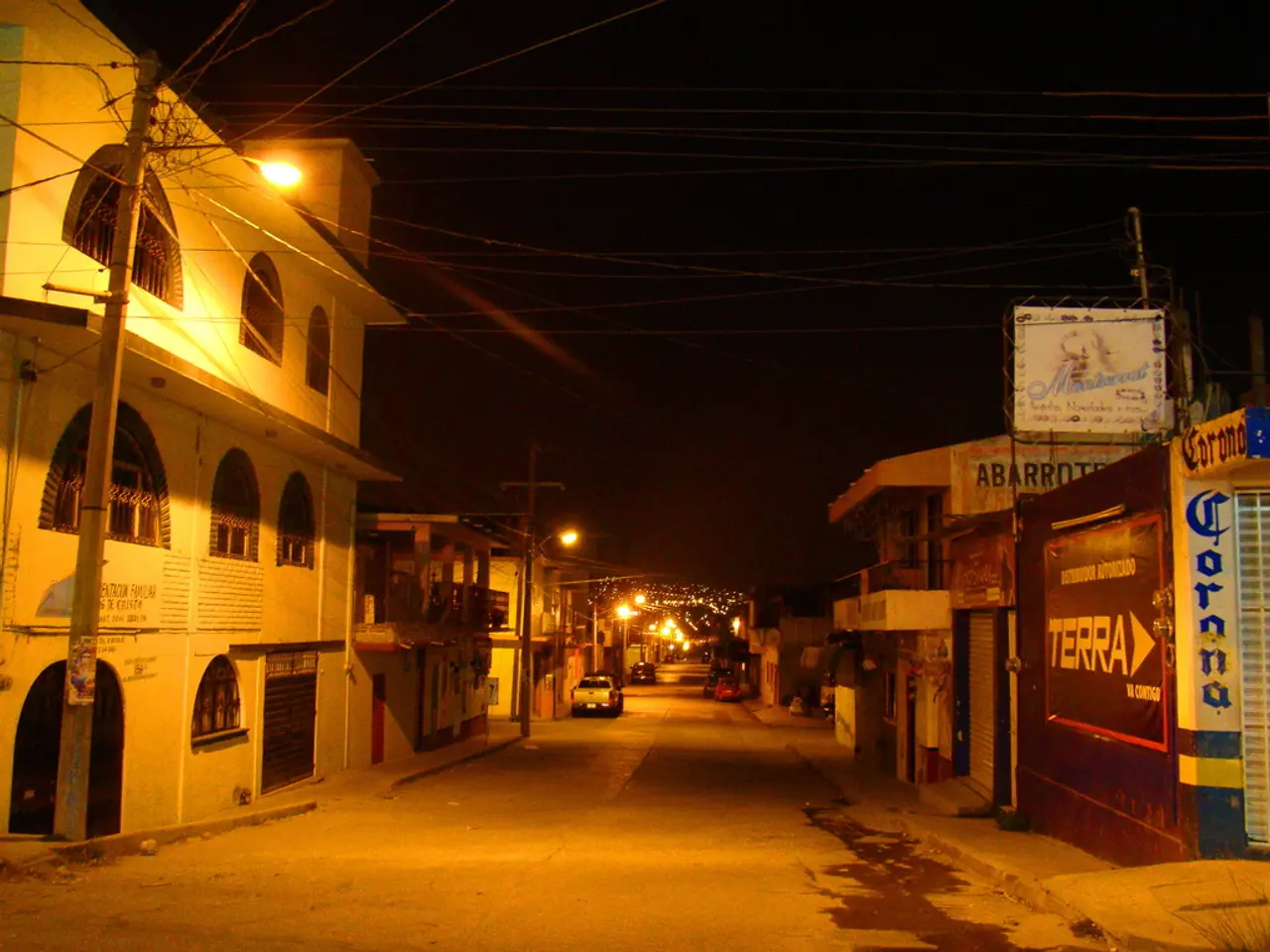Struggling Economy: Bremen Battles Bureaucracy and Infrastructure Woes - Ports See Increased Traffic
Economy of Bremen facing weakness - Increasing harbor trade volumes - Sluggish economy in Bremen, with uptick in port trade activity.
Hey there! The city-state of Bremen is grappling with a host of troubles, according to the local Chamber of Commerce. The main culprits? Excessive bureaucracy, inadequate infrastructure, high energy costs, rising labor costs, skills shortages, and weak domestic demand. These issues have knotted the knot in Bremen's economic fabric, leaving businesses feeling like they're constantly treading on thin ice.
The Chamber's Statistical Annual Report for 2024 paints a grim picture, highlighting these challenges as the primary reason for Bremen's economic woes.complicated red tape and insufficient infrastructure aren't just a nuisance, they're a full-blown roadblock for progress. Add to that, soaring energy and labor costs, a shortage of skilled workers, and a domestic market that's not too eager to spend, and you've got an economic perfect storm brewing in the smallest German state.
To add fuel to the fire, geopolitical crises have contributed to the city's economic malaise. The going isn't easy for businesses as they try to navigate uncertain international waters, and making sound decisions about planning and investments is a sheer nightmare. Long-standing partnerships are under review, and companies are scoping out new market opportunities or reevaluating the future of their production sites, relying on their harbors' connectivity to the global economy.
Despite the gloom and doom, Bremen's ports showed a glimmer of hope. In 2024, the seaport witnessed a 5.9% increase in sea cargo throughput and a 6.3% jump in container traffic, signaling a growing appetite for trade despite the economic headwinds.
"Reduce the burden factors!" urged Chamber President André Grobien, advocating for some relief to alleviate the pressure on businesses. The proposed budget guidelines for 2026/2027 include an allocation of €100 million for Bremen's ports, which Grobien regards as a promising initiative to revitalize the Stromkaje.
The annual report reveals a 1.0% economic decline in Bremen and Bremerhaven in 2024 following a similar 1.1% dip in 2023, marking two straight years of significant slowdown. This downturn is more pronounced than the national average, underlining Bremen's unique struggle in the German economic landscape.
In-Depth Insights:
Bremen's economic struggles emanate from several structural and economic difficulties, compounding its challenges as a built-up port city with substantial exposure to global trade. Bureaucratic red tape can slow down decision-making processes and inflate operational costs, while infrastructure deficits in transportation and logistics can detract from efficiency and competitiveness. High energy costs and escalating labor costs are pressing concerns for Bremen's industries, as they compete both domestically and internationally. Skills shortages impede companies' attempts to expand and innovate, while weak domestic demand dampens the manufacturing and service sectors reliant on robust internal spending.These challenges collectively hinder Bremen's economic dynamism, even though its position as a port city featuring export exposure may offer some respite. The city's dependence on global trade leaves it vulnerable to fluctuations in international trade policies and tariffs, exacerbating its economic challenges further[2].
Vocational training programs could be integral to addressing the skills shortage in Bremen's workforce, fostering innovation and growth within industries. The community policy might be reevaluated to prioritize such initiatives, ensuring a more competitive and adaptable labor market.
Furthermore, integrating sports activities within vocational training curriculums could enhance overall employee well-being and productivity, ultimately contributing to Bremen's economic recovery and resilience.







